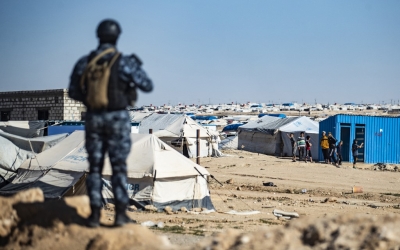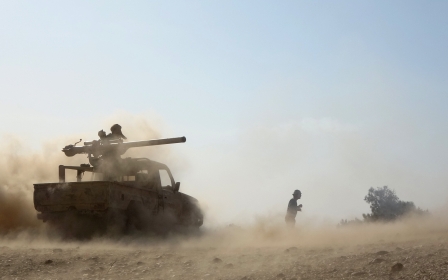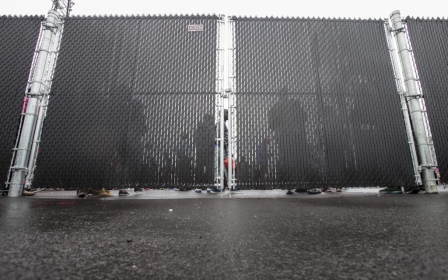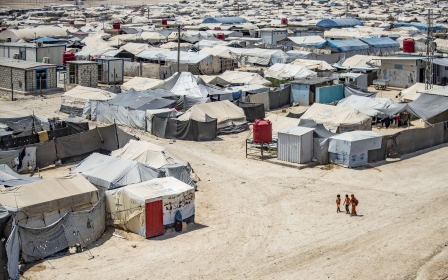Families of suspected IS-linked detainees in Syria file court action against Canada
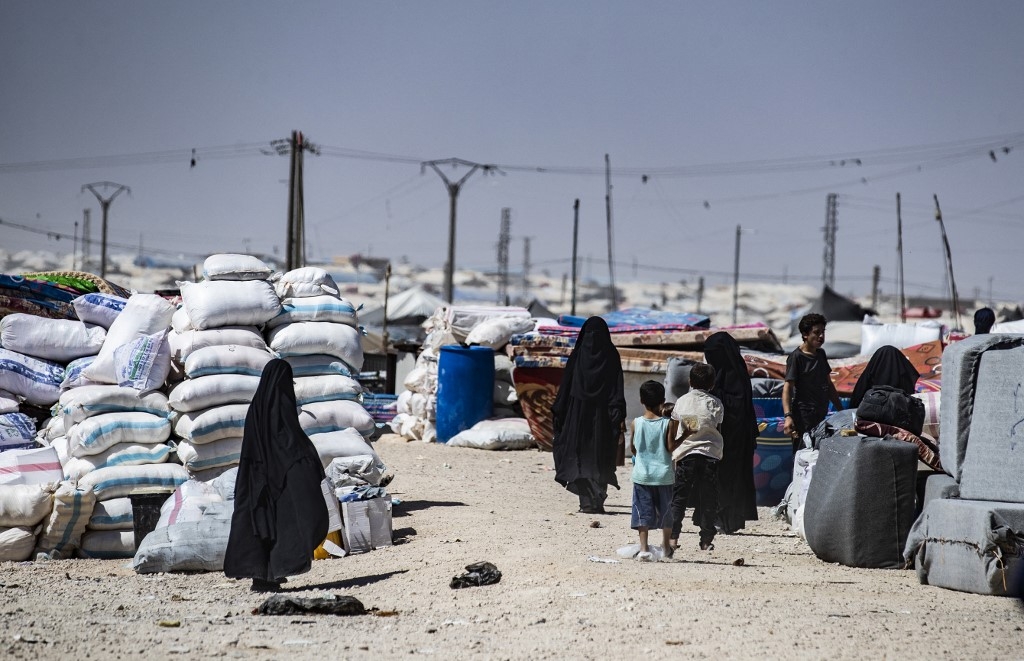
The families of more than two dozen Canadians held in Kurdish-run camps and prisons in Syria for people suspected of having links to the Islamic State (IS) group have filed a court application against the Canadian government, accusing Ottawa of failing to bring their loved ones home.
The relatives, who remained anonymous, allege that the government failed "to take all reasonable steps" to repatriate Canadian detainees captured by US-backed Kurdish forces in northeast Syria.
The case was filed on behalf of 14 children, eight women and four men who are being "illegally detained and have been for more than 3 years". The individuals are being held at al-Hol and Roj camps and at prisons in Hasakah, Qamishli and Derik.
"All applicant family members are detained arbitrarily and unlawfully," read the court application seen by Middle East Eye.
"The Canadian government has the ability to bring the unlawful detention to an end and secure release of the detained Canadians."
New MEE newsletter: Jerusalem Dispatch
Sign up to get the latest insights and analysis on Israel-Palestine, alongside Turkey Unpacked and other MEE newsletters
While many countries, including the US, Germany and France, have repatriated a number of their citizens from the same camps in Syria without issues, Canada has so far only secured the release of a five-year-old Canadian orphan whose parents were killed in an air strike.
Global Affairs Canada, a government department, said it is aware of its citizens being detained in northeast Syria and "is particularly concerned with cases of Canadian children", but given the security situation there, "consular assistance in Syria is extremely limited".
"We have been working on this lawsuit together for a long time now," a relative of one of the detained Canadians, who asked to remain anonymous, told MEE. "And in the meantime, we've been getting one ridiculous excuse after another by the Canadian government as to why they can't repatriate."
"We're distraught. We're devastated. We can't sleep. We have to imagine them being tortured."
Alexandra Bain, director of Families Against Violent Extremism (Fave), noted that the repatriation of the five-year-old, Amira, only took place after attorney Lawrence Greenspon filed a lawsuit against the government.
Now, Bain says her organisation will undertake a similar legal challenge to help repatriate other Canadians detained there.
"It is shocking and very distressing that the Canadian government continues to treat its Muslim citizens, the majority of them infants and small children, in this discriminatory and abusive way," Bain told MEE.
Canada 'not done enough'
Kurdish authorities running the camps in Syria have stated their willingness to hand over the detainees to Canadian authorities, but Ottawa has not accepted their offer, saying that travelling to Syria is too dangerous.
According to internal documents obtained by Global News Canada, it took Canadian officials a period of 18 months to decide whether it would travel to Syria to take custody of Amira, who was repatriated in October 2020.
The documents revealed that Ottawa was aware of Amira in April 2019 and located her months later, in December. In February 2020 authorities were invited by Kurdish counterparts to travel to Syria and take custody of her.
A memo said that in February 2020, Canadian officials "established Amira's identity and determined that she is entitled to Canadian citizenship", and Global Affairs Canada sent a letter to the Kurdish authorities saying, "We would be supportive of her repatriation should they agree to release her into the custody of her uncle".
Kurdish authorities, however, said they would "only hand her over to a Canadian delegation that visited their region and followed Kurdish protocols for release".
Canadian officials spent months trying to find "alternative solutions" to visiting Syria, before finally sending a delegation to take custody of her.
One of the relatives of those detained in the camps told MEE that the new details in Amira's case show the Canadian government has "been spending all their time trying to make this watertight legal case as to why they couldn't act, instead of actually fulfilling their responsibilities towards their citizens".
Last week, Save the Children said in a report that Canada had "not done enough to repatriate their citizens" from the camps.
Returning Canadians from Syria
MEE also understands that a meeting took place on 26 January 2021 between representatives of the Autonomous Administration of North and East Syria (AANES) in Iraq's Kurdistan region and Ashley Durec, head of the Canadian embassy office in Erbil.
During the meeting, the Canadian side said they were considering repatriating Canadian children and adults from camps and prisons holding IS-linked individuals.
"They said that it would be case-to-case repatriations and that ISIS-linked individuals would be individually judged in Canada," said Nurshan Hassan, AANES co-chair, using another term for the IS group.
Hassan said that it was not a problem to repatriate the children, but for the adults "we would rather be looking for a collective solution, that would make more sense in the frame of an international tribunal in North and East Syria".
Global Affairs confirmed to MEE that the meeting took place, but denied that the issue of repatriation was discussed.
"Canadian detainees and/or their possible repatriation to Canada were not discussed at this meeting," the agency said.
Middle East Eye delivers independent and unrivalled coverage and analysis of the Middle East, North Africa and beyond. To learn more about republishing this content and the associated fees, please fill out this form. More about MEE can be found here.



